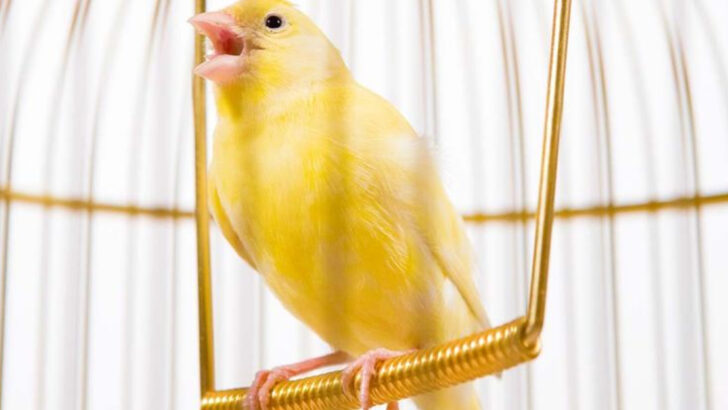Your canary’s sweet songs are the soundtrack of your home—so when silence replaces their cheerful chirps, it’s time to pay attention. Just like any pet, your canary can face health struggles, and catching them early is key to helping them recover.
The signs may be subtle, but they’re there. From drooping feathers to strange behaviors, knowing what to look for can make all the difference in your bird’s well-being.
This guide will walk you through 14 signs that your canary might not be feeling its best. Whether it’s a change in their song or their usual antics, we’ve got the tips you need to get them back to their happy, singing self. Ready to become your canary’s health hero?
Dull Feathers
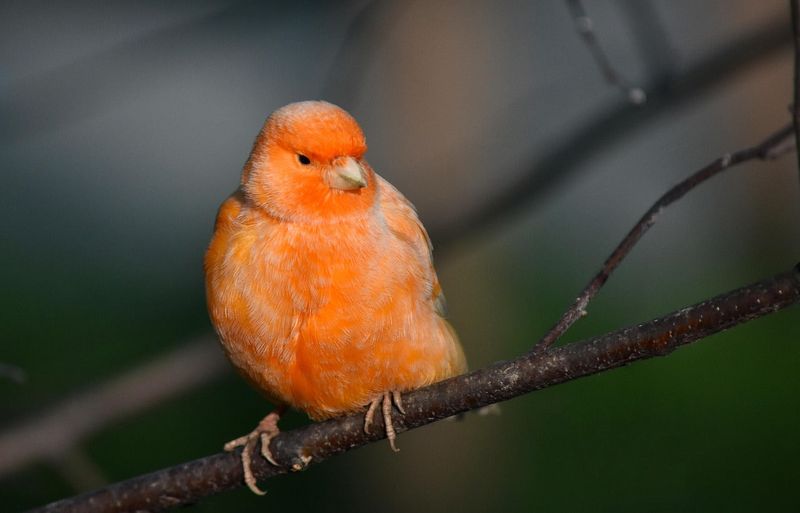
Dull Feathers
If your canary’s feathers appear dull or ruffled, it could be a sign of illness. Healthy canaries have sleek, shiny feathers. Dullness might indicate nutritional deficiencies or a more serious condition.
Check their diet to ensure they’re getting a balanced mix of seeds, fruits, and vegetables. Sometimes, adding vitamin supplements can help. If the condition persists, a visit to the vet is advisable to rule out underlying health problems.
Change in Singing
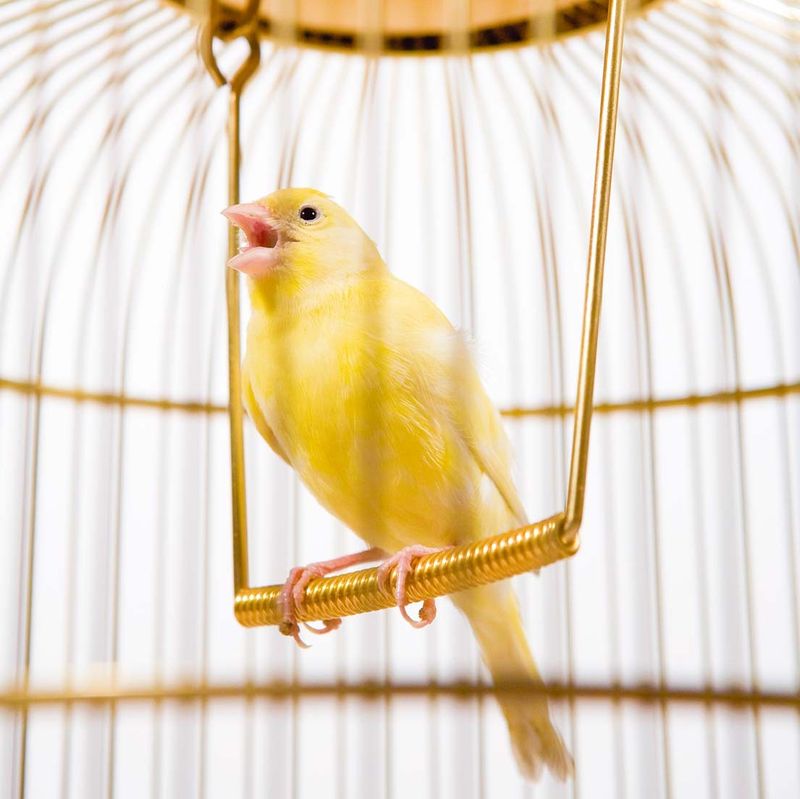
Change in Singing
Canaries are known for their beautiful songs. A sudden change or cessation in singing might indicate stress or illness. This could be due to changes in their environment or potential health issues.
Observe for other signs of discomfort. Ensure their cage is in a stress-free zone, away from loud noises and drafts. Sometimes, simply adjusting their cage location or routine can bring their song back.
Reduced Appetite
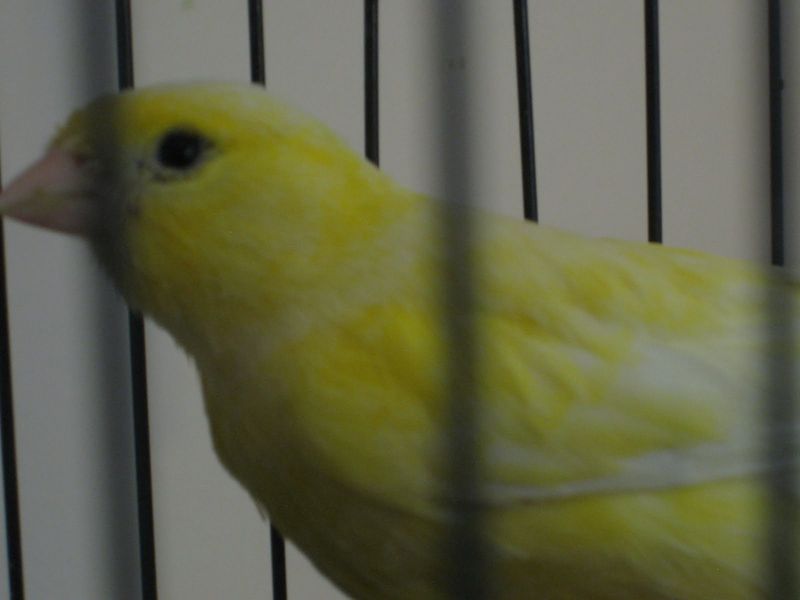
Reduced Appetite
Notice if your canary is eating less than usual. A drop in appetite can be due to illness, stress, or even boredom. It’s crucial to monitor their food intake.
Offer a variety of foods to entice them back to eating. If they continue to avoid food, consult with an avian veterinarian. Persistent appetite loss could indicate serious health issues that need addressing.
Lethargy
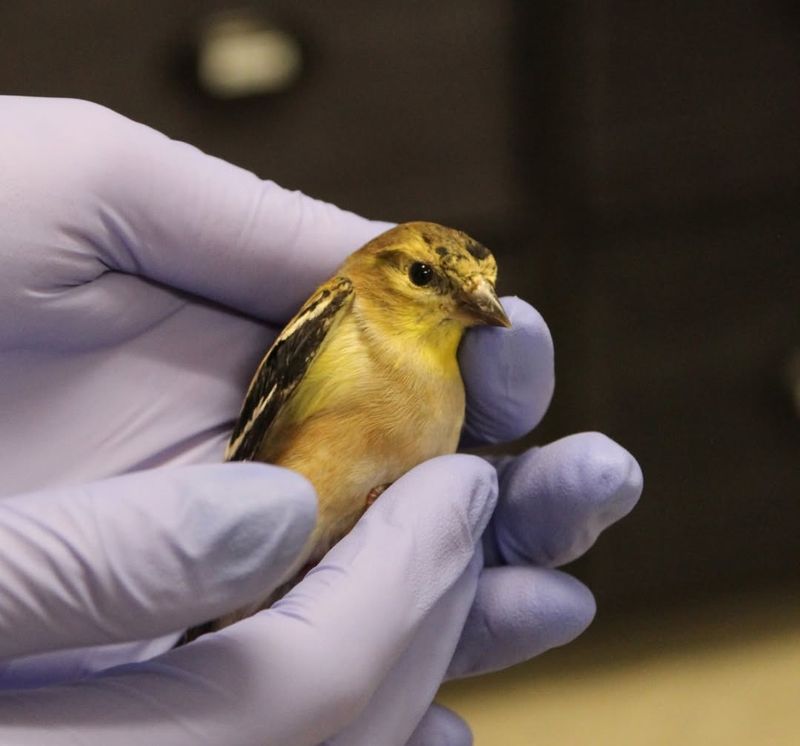
Lethargy
A lack of energy or enthusiasm, such as sleeping more than usual or being less active, can be a warning sign. Healthy canaries are perky and active.
Ensure they have a stimulating environment with enough light and interaction. If lethargy persists, it might be time for a veterinary check-up to rule out any medical concerns.
Labored Breathing
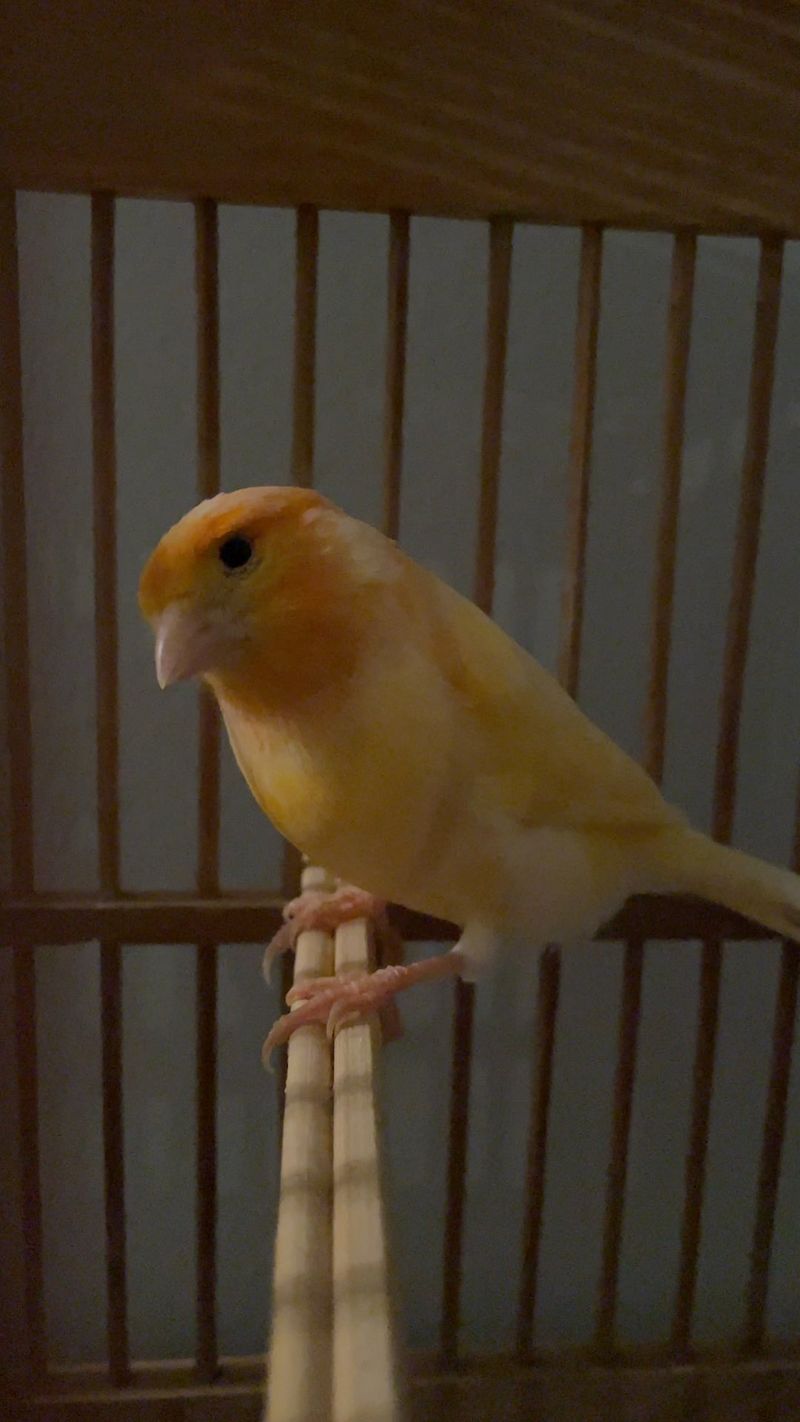
Labored Breathing
Breathing difficulties are a critical sign of potential respiratory issues. If your canary is breathing heavily or with an open beak, it’s important to act quickly.
Ensure their environment is clean and free of dust or pollutants which can aggravate respiratory problems. Consult a vet immediately for a thorough examination and treatment if necessary.
Discharge from Eyes or Nostrils
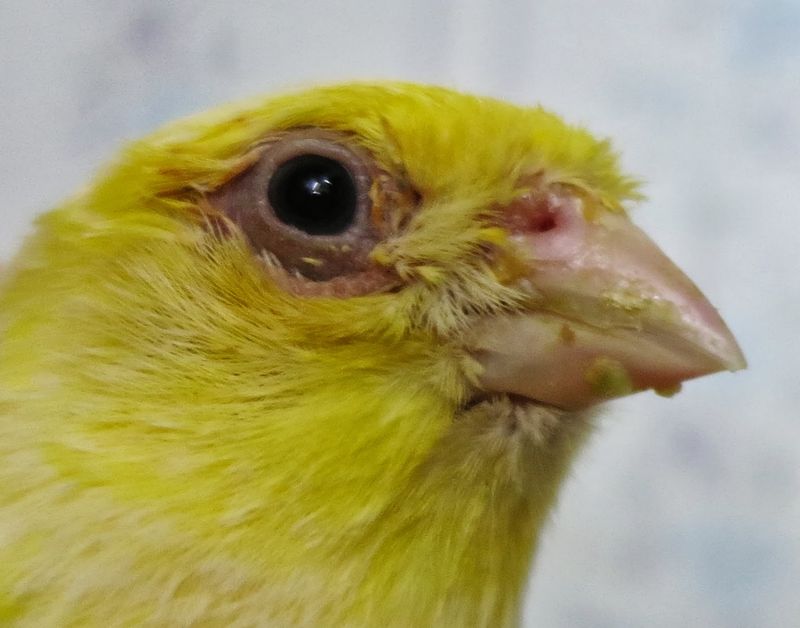
Discharge from Eyes or Nostrils
Any discharge from your canary’s eyes or nostrils can indicate an infection or allergy. Healthy canaries should have clear eyes and dry nostrils.
Keep their cage clean and dust-free to prevent infections. Consult an avian vet to determine if antibiotics or other treatments are required.
Changes in Droppings
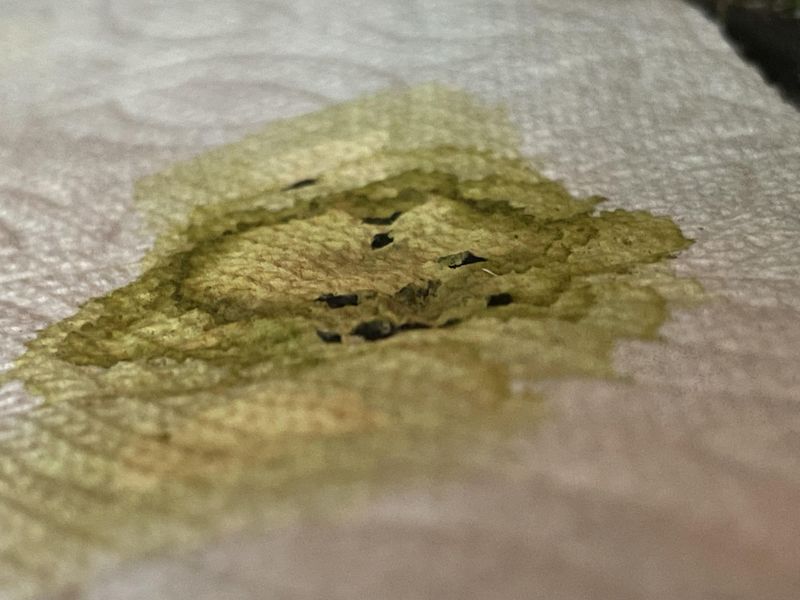
Changes in Droppings
Monitor your canary’s droppings for any change in color, consistency, or frequency. Abnormal droppings can signal digestive problems or infections.
Ensure they have access to fresh water and a balanced diet. If changes persist, a vet visit is essential to diagnose potential underlying conditions.
Weight Loss

Weight Loss
Significant weight loss, noticeable when handling your canary, could be linked to several health issues. It’s often a symptom of malnutrition or illness.
Regularly weigh your canary to track their health. Offer a nutrient-rich diet and consult a vet if you notice continued weight loss to investigate the cause.
Fluffed-up Appearance
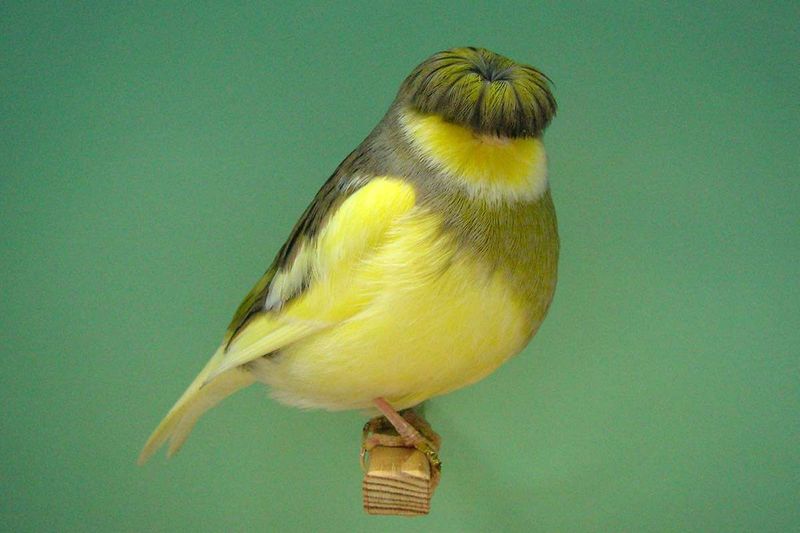
© International Gloster Breeders Association
Fluffed-up Appearance
Canaries often fluff up their feathers when they’re cold or unwell. If this behavior is prolonged, it might indicate a deeper health issue.
Ensure the cage is at the right temperature and free from drafts. If your canary remains fluffed up, a vet consultation is recommended.
Tail Bobbing
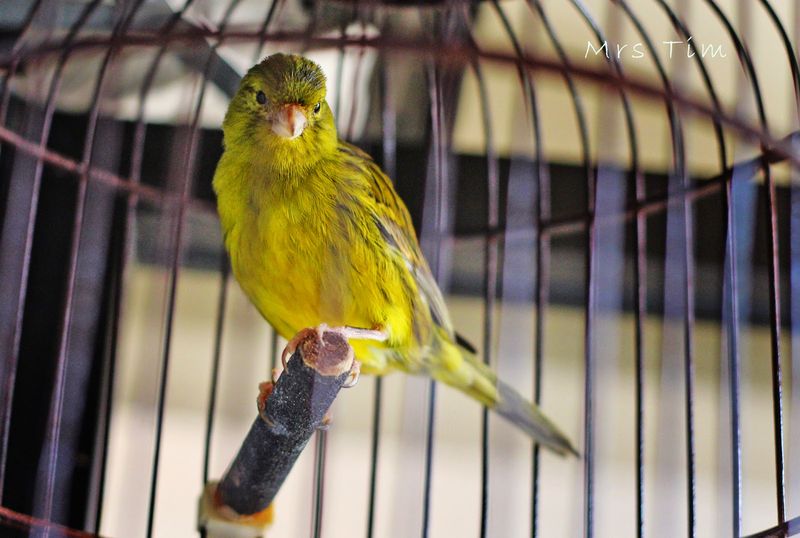
Tail Bobbing
Tail bobbing is often a sign of respiratory distress. It occurs when a canary forces its breath, causing the tail to move visibly with each breath.
This is a serious symptom that requires immediate attention. Ensure the cage environment is optimal and consult a veterinarian promptly for a complete health evaluation.
Unusual Noises
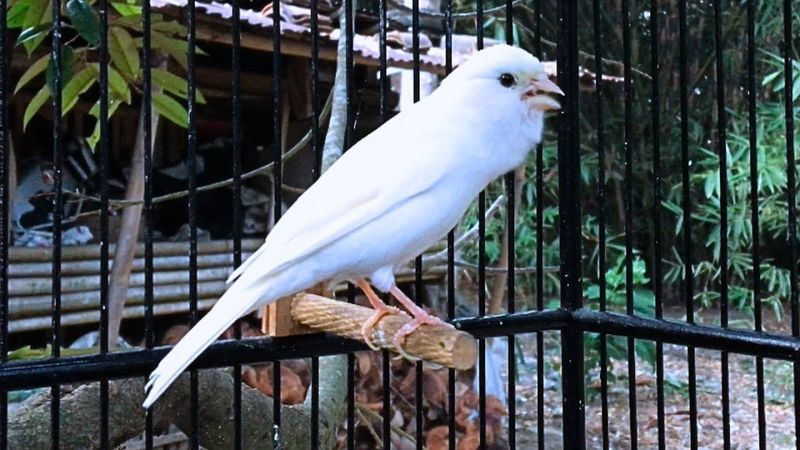
Unusual Noises
Canaries generally make pleasant sounds, so if you hear wheezing, clicking, or any unusual noises, it might indicate a respiratory problem.
Examine their environment for irritants like smoke or strong odors. A visit to the vet is wise to rule out infections or other respiratory conditions.
Changes in Behavior
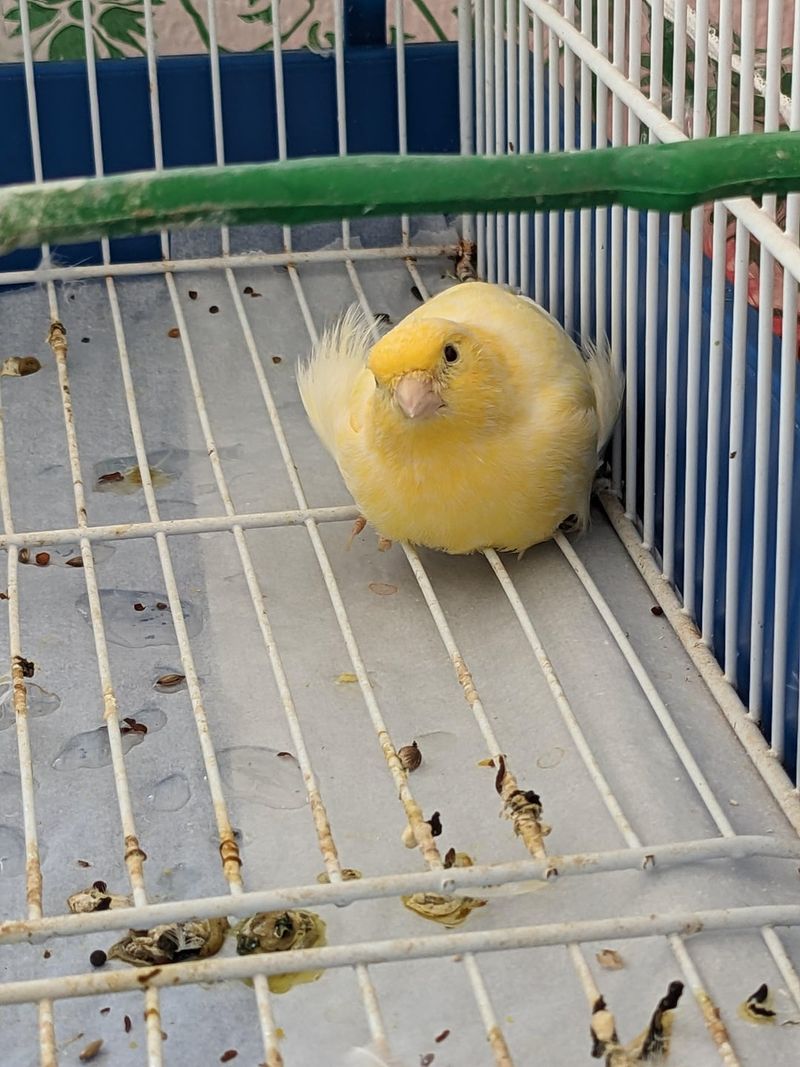
Changes in Behavior
Behavioral changes such as increased aggression or unusual shyness can be signs of stress or illness. A typically social canary hiding away is a red flag.
Evaluate recent changes in their environment or routine that could be causing stress. Consult a vet if the behavior persists to explore possible medical issues.
Vomiting or Regurgitation
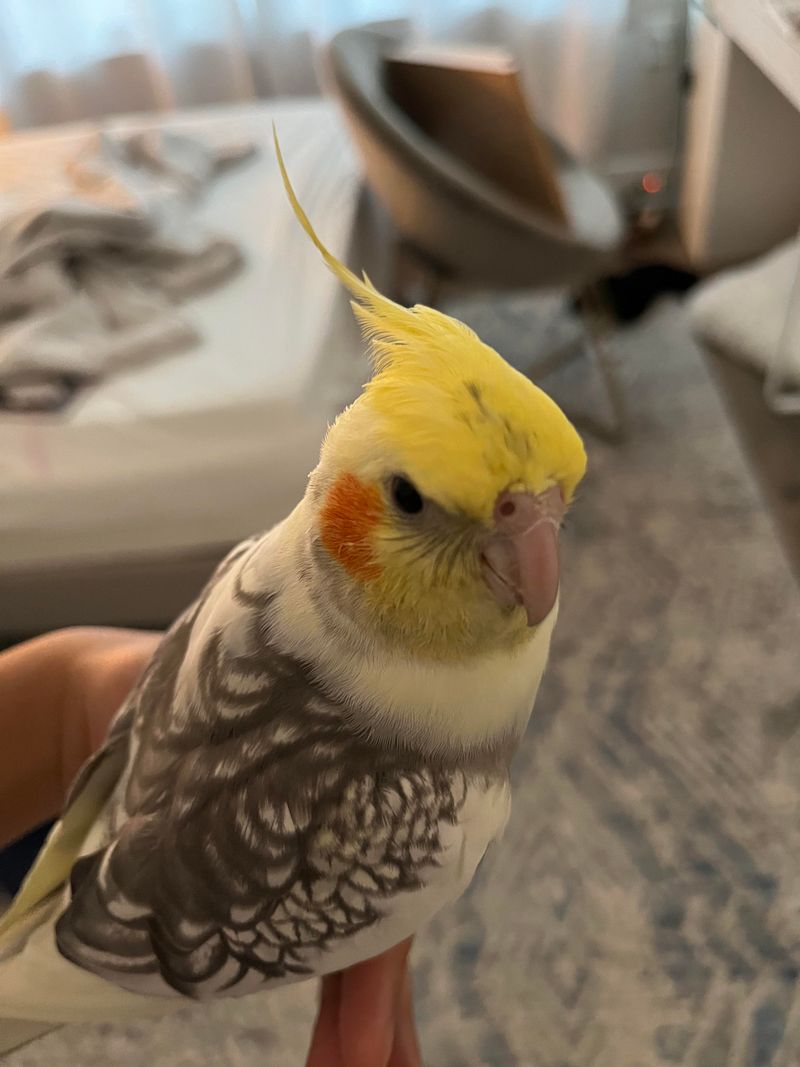
Vomiting or Regurgitation
Vomiting or frequent regurgitation is not normal in canaries and can point to digestive issues or infections. Pay close attention if you observe this behavior.
Ensure they have a balanced diet and avoid any foods that might be causing irritation. Veterinary advice should be sought to address any serious health concerns.
Swollen Body Parts
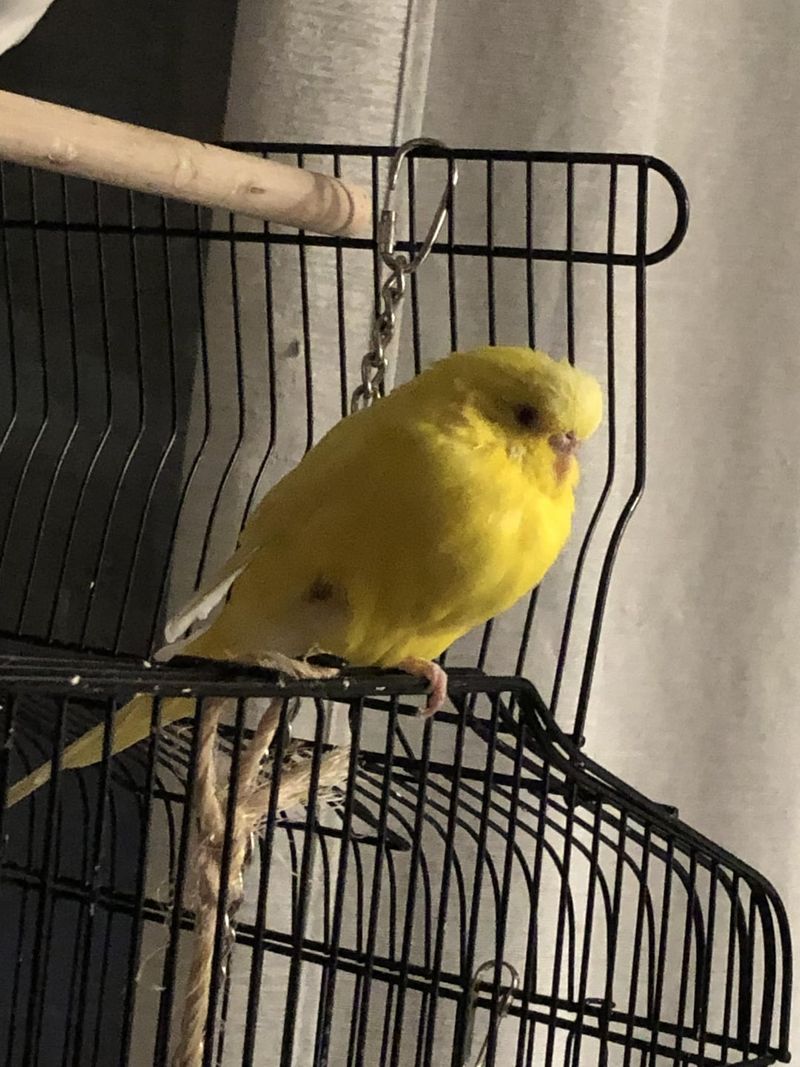
Swollen Body Parts
Swelling of the feet, beak, or other body parts can indicate infections or injuries. It’s essential to notice and address these symptoms promptly.
Inspect their living environment for any hazards that could cause injuries. Seek veterinary care to diagnose the cause of swelling and to provide appropriate treatment.

